Unleashing the Power of Shepherd Guarding Instinct
Hello, dog lovers today I will explain in detail about the German Shepherd Guarding Instinct.
I am Dr Arif Aziz, in this blog; we’ll dive into the fascinating world of the guarding instinct in German Shepherds. We’ll explore what it means, how it developed over time, and how we can understand and nurture this special trait in our furry friends. So, get ready to learn more about why German Shepherds are such incredible protectors.
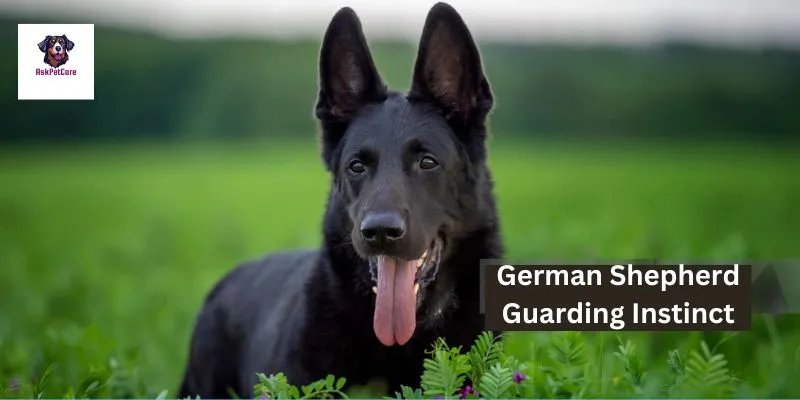
German Shepherds are special dogs. They’re known for being loyal and protective friends to their owners. You might have seen them as police dogs or as family pets. They’re popular because they’re smart, strong, and make great companions.
But what makes German Shepherds even more interesting is their guarding instinct. This means they have an instinct to protect their loved ones and their territory. It’s like having a built-in security system! This guarding instinct is one of the reasons why German Shepherds are chosen for important jobs, like helping police officers or working as service dogs.
The Evolution of the Guarding Instinct Exploring the history and origins of German Shepherds as herding and working dogs:
The Evolution of the Guarding Instinct:
Let’s take a journey back in time to understand how German Shepherds became the great protectors they are today. Long ago, German Shepherds started as herding dogs. This means they helped farmers by keeping sheep and other animals in line.
As time went on, people realized that German Shepherds had more talents than just herding. They were smart, strong, and could learn tasks quickly. So, they began using them for other jobs, like guarding farms and helping with police work.
The guarding instinct of German Shepherds developed over many years of selective breeding. This means that people chose to breed dogs with the best protective traits. They wanted dogs that were brave, alert, and loyal. Over time, these traits became stronger in German Shepherds.
Through careful breeding and training, German Shepherds became known as some of the best guard dogs in the world. Their keen senses, intelligence, and instincts make them excellent protectors for homes, families, and even entire communities.
So, the guarding instinct of German Shepherds is not just something they were born with—it’s something that evolved over centuries of working closely with humans. It’s a testament to their long history of loyalty and service to mankind.
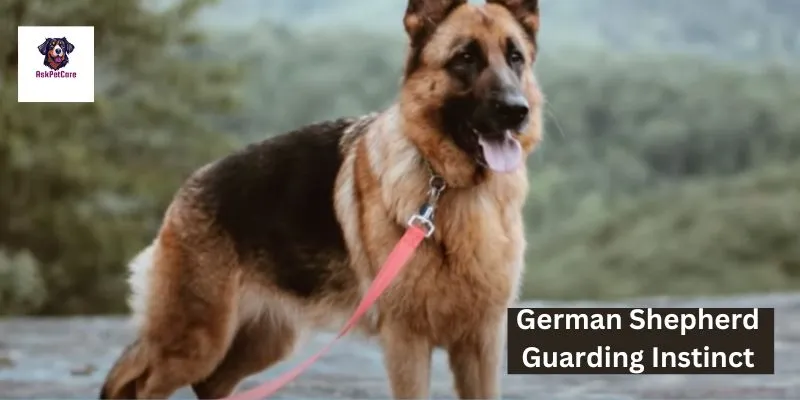
My related articles:
tips-for-socializing-your-german-shepherd-puppy:
german-shepherd-dog-breed-a-z-informations:
Understanding the Genetic Basis Explaining the genetic predisposition of German Shepherds towards guarding behavior:
Understanding the Genetic Basis:
Have you ever wondered why German Shepherds seem to have a natural talent for guarding? Well, it turns out that their genes play a big role in this.
You see, genes are like tiny instructions inside a dog’s body. They determine things like what color fur they have and what kind of personality they might have. In the case of German Shepherds, their genes give them a special predisposition—or tendency—towards guarding behavior.
This means that even before a German Shepherd is born, they already have a tendency to want to protect their family and territory. It’s like they’re born with a built-in instinct to keep everyone safe.
But genes aren’t the only thing at play here. Breeding practices also have a big impact on shaping and preserving this trait in German Shepherds. For many years, people have carefully selected which dogs to breed together based on their protective instincts. They chose dogs that showed bravery, loyalty, and a strong desire to guard.
By doing this over and over again, generation after generation, people were able to strengthen the guarding behavior in German Shepherds. It’s kind of like how farmers choose the best seeds to plant each year to grow the tastiest fruits and vegetables.
So, thanks to their genes and the careful breeding practices of humans, German Shepherds have become the amazing guard dogs we know and love today. They’re not just born to protect—they’re born to excel at it.

The Behavioral Characteristics Detailing the typical behaviors associated with the guarding instinct in German Shepherds:
The Behavioral Characteristics:
Have you ever noticed how German Shepherds seem to always be on alert, like they’re watching over everything around them? This is because of their natural guarding instincts, which show up in different behaviors.
One key behavior is vigilance. This means they’re always paying close attention to what’s happening in their environment. They might stand tall, with their ears perked up and their eyes scanning the area. It’s like they’re saying, “I’ve got my eyes on you!” This vigilance helps them spot anything unusual or potentially threatening, so they can act quickly to protect their family or territory.
Another important behavior is territoriality. German Shepherds are known for being protective of their space. Whether it’s their home, their yard, or even their favorite spot on the couch, they like to make sure it’s safe and secure. They might bark or growl at strangers who come too close, warning them to stay away. It’s their way of saying, “This is my turf, and I’m in charge here!”
But perhaps the most noticeable behavior associated with the guarding instinct in German Shepherds is their strong protective instincts towards their family. They’re incredibly loyal and will do whatever it takes to keep their loved ones safe. They might stand between their family and any perceived threat, showing courage and determination. It’s like they’re saying, “I’ll protect you no matter what.”
Overall, these behaviors—vigilance, territoriality, and protective instincts—are all part of what makes German Shepherds such excellent guard dogs. They’re always on the lookout, ready to defend their family and territory at a moment’s notice. It’s just one of the many reasons why they’re considered such valuable companions.
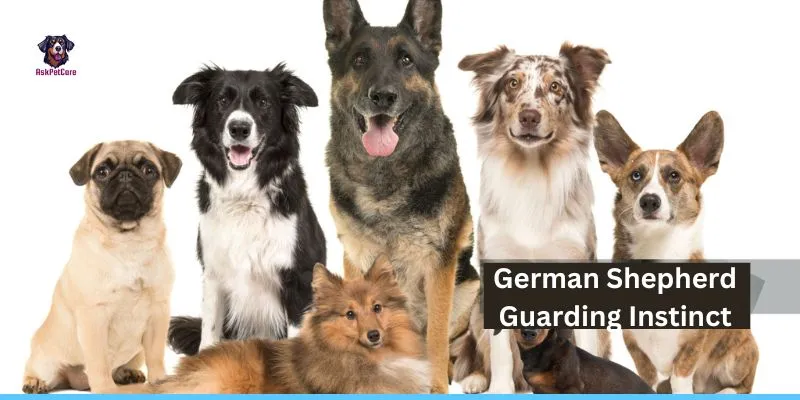
Training and Socialization Importance of early socialization in shaping a well-rounded and balanced German Shepherd:
Training and Socialization:
Imagine you have a puppy German Shepherd. It’s like having a blank canvas—you have the chance to teach them all sorts of things! One of the most important things you can do is socialize them early on. This means exposing them to different people, places, and experiences while they’re still young.
Socialization helps your German Shepherd become comfortable and confident in all sorts of situations. It teaches them how to interact with other dogs, how to behave around strangers, and how to handle new environments without getting scared or anxious.
But socialization isn’t just about making your German Shepherd friendly—it’s also about helping them become well-rounded and balanced dogs. It can prevent behavior problems down the road, like fearfulness or aggression. Plus, it strengthens the bond between you and your furry friend, making your relationship even stronger.
Now, let’s talk about training. Training is like teaching your German Shepherd how to be the best dog they can be. It’s important to start training early and be consistent with it. This means using positive reinforcement—like treats and praise—to reward good behavior and gently correct any mistakes.
When it comes to channeling the guarding instinct in a positive and controlled manner, there are a few key strategies you can use. First, teach your German Shepherd a command—like “watch” or “guard”—that signals when it’s okay to be protective. Then, practice this command in different situations, gradually increasing the level of distraction.
It’s also important to provide plenty of mental and physical stimulation for your German Shepherd. This can help prevent boredom and frustration, which can lead to excessive guarding behavior. Try activities like obedience training, puzzle toys, or interactive games to keep their minds and bodies busy.
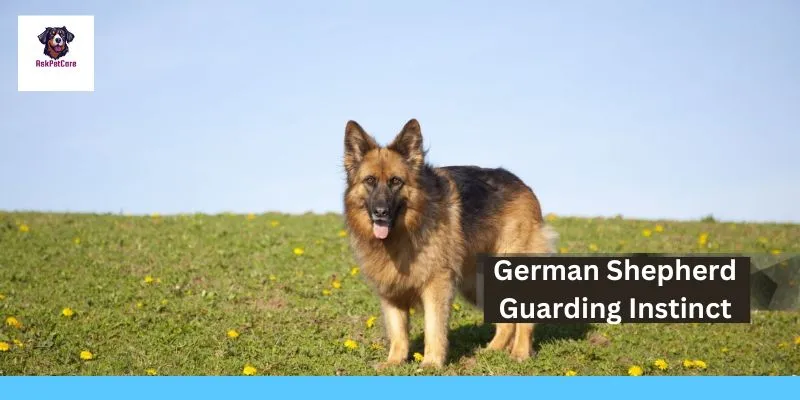
Managing Guarding Behavior:
Sometimes, despite your best efforts, you may still encounter challenges with your German Shepherd’s guarding behavior. Maybe they bark too much at the mailman, or they growl at visitors who come to your home. Don’t worry—this is normal, and there are things you can do to address it.
First, try to identify what’s triggering your German Shepherd’s guarding behavior. Is it a specific person, object, or situation? Once you know the trigger, you can work on desensitizing your dog to it. This means gradually exposing them to the trigger in a controlled way while rewarding calm, non-aggressive behavior.
You can also teach your German Shepherd an alternative behavior to replace their guarding instincts. For example, instead of barking at strangers, teach them to go to their bed or sit quietly when someone comes to the door. This gives them something else to focus on and helps positively redirect their energy.
Consistency is key when managing guarding behavior. Make sure everyone in your household is on the same page and follows the same rules with your German Shepherd. And remember, patience and positive reinforcement are your best friends. With time and practice, you can help your German Shepherd become a well-behaved and balanced companion.
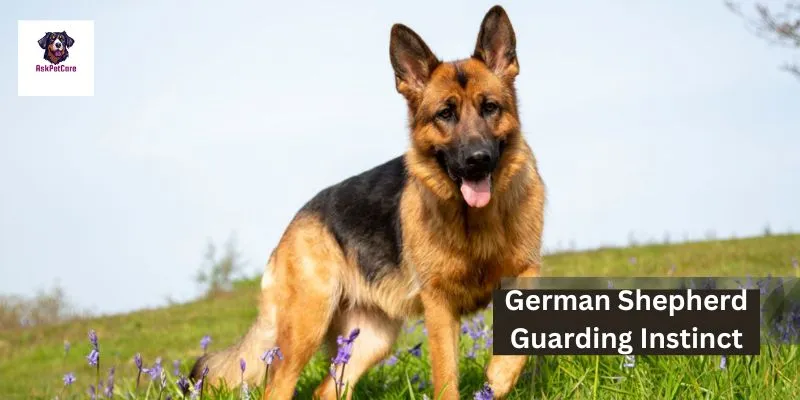
Practical Applications Discussing the various roles where German Shepherds excel due to their guarding instinct:
Practical Applications:
German Shepherds are like superheroes with fur! Their natural guarding instincts make them perfect for all sorts of important jobs. Let’s take a look at some of the roles where they shine.
First up, we have family guardians. German Shepherds are loyal and protective, making them excellent watchdogs for your home. They’ll bark to alert you if they sense anything suspicious and will stand by your side to keep you safe.
Next, we have police and military dogs. German Shepherds are super smart and trainable, which makes them perfect for working alongside police officers and soldiers. They can sniff out drugs, track down bad guys, and even help with search and rescue missions.
And let’s not forget about service animals. German Shepherds have a gentle side too! They can be trained to assist people with disabilities, like guiding the blind or providing support for those with PTSD. Their caring nature and strong work ethic make them amazing companions for people who need a little extra help.
So, whether they’re guarding your family, serving their country, or helping those in need, German Shepherds are true heroes in every sense of the word.
Responsible Ownership:
Owning a German Shepherd is a big responsibility, but it’s also incredibly rewarding. To make sure your furry friend stays happy and healthy, it’s important to be a responsible owner.
First and foremost, that means providing proper care. This includes things like regular trips to the vet, a balanced diet, and plenty of exercise. German Shepherds are active dogs and need lots of mental and physical stimulation to thrive.
Training is also key. Teaching your German Shepherd basic commands like sit, stay, and come can help keep them safe and well-behaved. And don’t forget about socialization! Exposing your pup to new people, places, and experiences from a young age will help them grow into confident and well-adjusted adults.
But perhaps most importantly, responsible ownership means understanding your German Shepherd’s needs and respecting their instincts. They’re natural-born protectors, and it’s up to you to nurture and positively channel that instinct.
So, whether you’re cuddling on the couch or out on a mission together, being a responsible owner means giving your German Shepherd the love, care, and guidance they deserve. And in return, you’ll have a loyal and devoted companion for life.
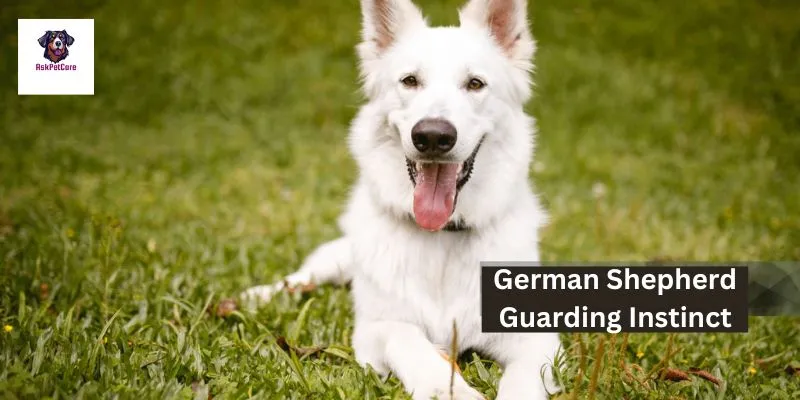
10 Signs Of German Shepherd Guarding Instinct:
here are ten signs that may indicate a German Shepherd is exhibiting their natural guarding instinct:
- Alertness: German Shepherds are often highly alert and attentive to their surroundings. They may frequently scan their environment, keeping an eye out for any potential threats.
- Protective Stance: When a German Shepherd senses a potential threat, they may adopt a protective stance. This could involve standing tall with ears erect, head held high, and body positioned to intervene if necessary.
- Vocalization: German Shepherds may bark or growl to alert their owners of perceived threats. This vocalization can vary in intensity, depending on the level of perceived danger.
- Territorial Behavior: German Shepherds are naturally territorial dogs and may exhibit behaviors such as patrolling their property boundaries or marking their territory with urine.
- Suspicion of Strangers: German Shepherds may show wariness or suspicion towards unfamiliar people entering their territory. They may approach strangers cautiously or stand between them and their families.
- Protectiveness of Family Members: German Shepherds are fiercely loyal to their families and may demonstrate protective behavior towards them. They may position themselves between their family members and potential threats or show aggression towards perceived intruders.
- Boundary Enforcement: German Shepherds may actively patrol and monitor the boundaries of their territory, whether it’s a home, yard, or property. They may exhibit behavior such as pacing, sniffing, or visually inspecting the perimeter.
- Response to Unusual Noises: German Shepherds are often sensitive to unusual or unfamiliar noises. They may bark or investigate any sounds that they perceive as out of the ordinary, signaling their readiness to protect their territory.
- Readiness to Defend: When faced with a perceived threat, German Shepherds may demonstrate a readiness to defend their territory or loved ones. This could involve standing their ground, vocalizing warnings, or even engaging in physical confrontation if necessary.
- Bonding with Family: German Shepherds develop strong bonds with their human family members, and this bond can contribute to their protective instincts. They may exhibit heightened vigilance and a sense of duty to keep their loved ones safe from harm.
It’s important to note that while these signs may indicate a German Shepherd’s guarding instinct, they should be managed and trained appropriately to ensure they exhibit controlled and appropriate behavior in different situations.
| Sign | Description |
| 1. Alertness | German Shepherds are highly attentive and watchful, often scanning their surroundings for any potential threats. |
| 2. Protective Stance | When sensing danger, German Shepherds may stand tall with ears erect and position themselves to intervene if necessary. |
| 3. Vocalization | They may bark or growl to alert their owners of perceived threats, with intensity varying based on the level of danger. |
| 4. Territorial Behavior | German Shepherds may patrol and mark their territory, exhibiting behaviors such as boundary enforcement and urine marking. |
| 5. Suspicion of Strangers | They may show wariness towards unfamiliar people entering their territory, approaching cautiously, or standing between them and family. |
| 6. Protectiveness | German Shepherds are fiercely loyal to their families, displaying protective behavior such as positioning themselves between family members and potential threats. |
| 7. Boundary Enforcement | Actively monitoring and patrolling their territory, they may pace, sniff, or visually inspect the perimeter. |
| 8. Response to Noises | They react to unusual sounds, barking or investigating any perceived threats to alert their readiness to protect. |
| 9. Readiness to Defend | When faced with danger, they may demonstrate readiness to defend their territory or loved ones, through vocalization or engagement. |
| 10. Bonding with Family | Developing strong bonds with their human family, German Shepherds exhibit heightened vigilance and a sense of duty to protect loved ones. |
Now Understands Will A German Shepherd Attack An Intruder:
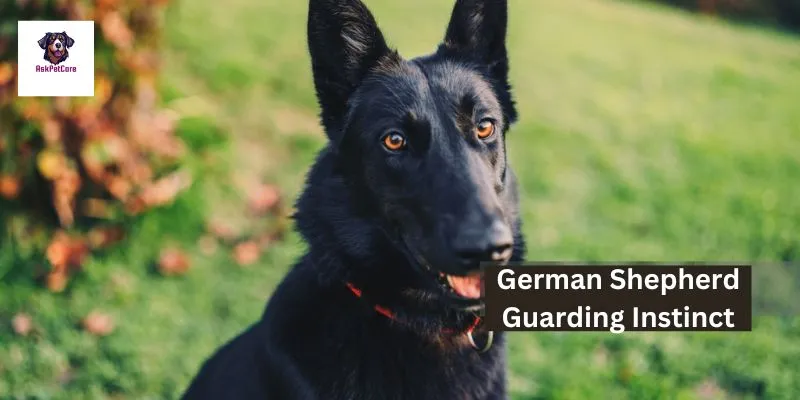
German Shepherds are known for being protective of their family and territory. If they perceive someone as a threat, like an intruder entering their home without permission, they may respond with aggression to protect their loved ones.
However, whether a German Shepherd will attack an intruder depends on several factors:
- Training: If a German Shepherd has been trained to respond to intruders with aggression, they may be more likely to attack. Proper training and socialization can help teach them when it’s appropriate to protect and when it’s not.
- Temperament: Each dog is different, and some German Shepherds may be more naturally protective or territorial than others. Breeders often select for traits like loyalty and protectiveness, but individual personality also plays a role.
- Environment: The environment in which the dog was raised and lives can influence their behavior. A German Shepherd who has been raised in a calm, stable environment with positive experiences may be less likely to attack without good reason.
- Provocation: German Shepherds are intelligent animals and can often assess situations. If an intruder poses a real threat, such as showing aggression or attempting to harm their family, a German Shepherd may feel justified in defending them.
- Owner Influence: The owner’s behavior and response to the situation can also impact how the dog reacts. If the owner is calm and in control, they can help guide the dog’s behavior and prevent unnecessary aggression.
In summary, while German Shepherds have a strong protective instinct and may be willing to defend their territory and loved ones, whether they attack an intruder depends on various factors, including training, temperament, environment, provocation, and owner influence.
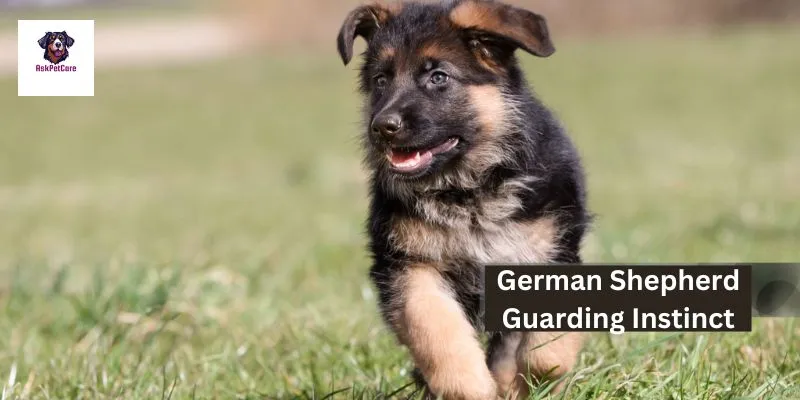
Now explore the German shepherd guarding instinct test:
A German Shepherd guarding instinct test is a way to assess how well a German Shepherd exhibits its natural protective instincts. It’s like giving them a little exam to see how good they are at guarding their territory or family.
During the test, the dog may be presented with different scenarios or situations that might trigger their guarding instincts. For example, a stranger might approach the dog’s owner or enter their home without permission. The dog’s response to these scenarios is observed and evaluated.
The test is designed to assess various aspects of the dog’s behavior, including:
- Alertness: How quickly does the dog notice the potential threat? Are they paying attention to their surroundings?
- Response: How does the dog react when they perceive a threat? Do they bark, growl, or approach the intruder?
- Control: Can the dog demonstrate controlled behavior, such as standing their ground without becoming overly aggressive?
- Obedience: Will the dog respond to commands from their owner, such as “stay” or “leave it”?
- Confidence: Does the dog show confidence in their actions, or do they seem unsure or fearful?
The test is not about encouraging aggression in the dog but rather assessing their instincts and how they respond to different situations. The test must be conducted safely and responsibly, with trained professionals overseeing the process.
The results of the test can help owners understand their dog’s behavior better and determine if any additional training or socialization is needed. It can also be useful for breeders or organizations that work with German Shepherds to assess their suitability for certain roles, such as police work or service dog training.
Overall, a German Shepherd guarding instinct test provides valuable insights into the dog’s temperament and behavior, helping to ensure they are well-prepared to fulfill their role as loyal and protective companions.
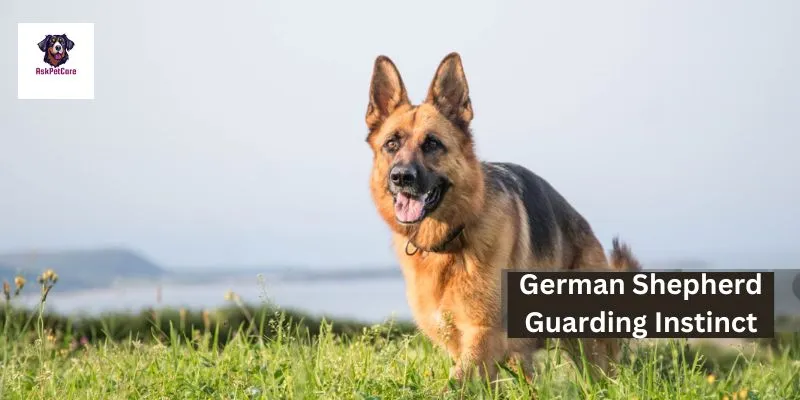
Now Understands Will A German Shepherd Protect You Without Training:
Yes, a German Shepherd may instinctively try to protect you without specific training.
German Shepherds are naturally loyal and protective dogs. It’s in their genes! They have a strong instinct to guard and defend their family members and territory. This instinct has been bred into them over many generations, starting from their origins as herding dogs in Germany.
So, even without formal training, a German Shepherd may feel compelled to protect you if they sense danger or perceive a threat. It’s like a built-in instinct that kicks in automatically.
For example, if they see someone acting aggressively toward you or trying to harm you, they may bark, growl, or even try to intervene to keep you safe. They’re like your furry bodyguard, always looking out for you.
However, it’s important to note that while German Shepherds have this natural protective instinct, training can help them channel it in appropriate ways. Training can teach them how to respond to different situations and how to control their impulses. It can also help strengthen the bond between you and your dog, making them even more reliable in times of need.
So, while a German Shepherd may instinctively try to protect you without training, proper training and socialization can enhance their ability to keep you safe and ensure they respond appropriately in different situations.
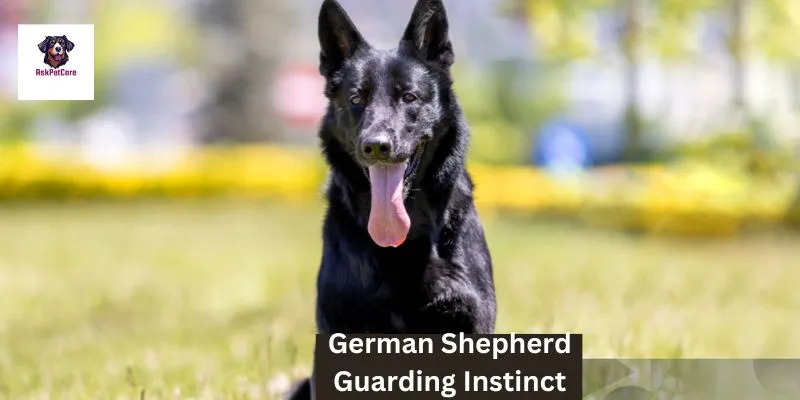
Do German Shepherds have guarding instincts?
Yes, German Shepherds are known for their strong guarding instincts. These instincts have been bred into them over generations, originally developed for herding and protecting livestock. Their intelligence, loyalty, and protective nature make them natural guardians of their family and territory.
Why does my German Shepherd guard me?
Your German Shepherd may guard you because of their innate protective instincts and their strong bond with you. They see you as part of their family, and it’s their instinct to keep their loved ones safe from potential threats. Additionally, they may pick up on cues from your body language or the environment that signal danger, prompting them to take action to protect you.
How do I know if my German Shepherd is protective?
Several signs may indicate your German Shepherd is protective:
- Alertness: They may be highly attentive to their surroundings, always on the lookout for potential threats.
- Vocalization: They may bark or growl at unfamiliar people or animals, especially when they perceive them as a threat to you or your home.
- Protective stance: They may position themselves between you and a perceived threat, standing tall with their ears erect and body tense.
- Body language: Their body language may convey confidence and readiness to defend, such as stiffening their posture or showing assertive behavior.
- Bonding behavior: They may show signs of strong attachment and loyalty to you, seeking to be close to you and responding quickly to your cues or commands.
Overall, if your German Shepherd displays these behaviors consistently, it’s likely that they have a protective instinct towards you and are willing to defend you if necessary. However, it’s essential to provide proper training and socialization to ensure their protective behaviors are appropriate and well-controlled.
I hope you will thoroughly understand about Guarding Instinct of German Shepherds if still have any quarry contact me.
Here are some reference books that are considered authoritative on the topic of dog care, including nail care:
- “The Complete Dog Owner’s Manual” by Dr. Bruce Fogle
- “The Ultimate Guide to Dog Care: Everything You Need to Know to Keep Your Dog Happy and Healthy” by Amy Marder and Andrew Luescher
